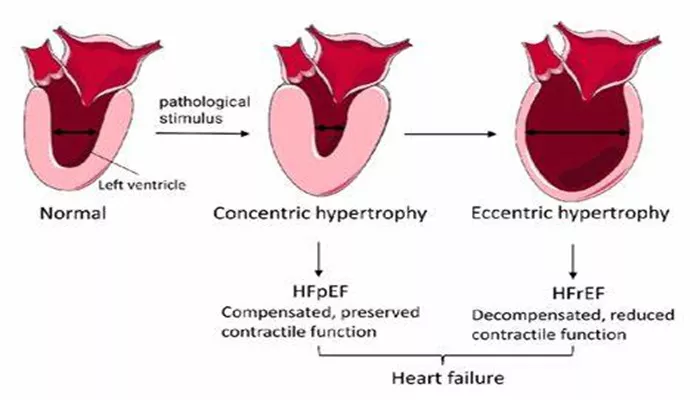Left ventricular hypertrophy (LVH) is a condition where the walls of the heart’s left ventricle thicken. This thickening can occur due to various factors, including high blood pressure, heart valve disease, and intense physical training. LVH affects how the heart functions and can lead to serious complications, such as heart failure and arrhythmias. Understanding the implications of LVH and its impact on life expectancy is essential for patients diagnosed with this condition.
In this article, we will explore how long individuals can live with left ventricular hypertrophy, considering various factors that influence longevity.
What Is Left Ventricular Hypertrophy?
The heart has four chambers, and the left ventricle is responsible for pumping oxygenated blood to the body. When the left ventricle faces increased pressure, its muscle walls may thicken to cope with the strain. This condition, known as left ventricular hypertrophy, can be diagnosed through imaging tests like echocardiograms or MRIs.
LVH itself is not a disease but a sign that the heart is under stress. If left untreated, it can progress and lead to more severe heart problems.
Causes of Left Ventricular Hypertrophy
High Blood Pressure: Chronic hypertension is the most common cause. The heart has to work harder to pump blood against higher pressure.
Aortic Stenosis: This condition narrows the aortic valve, increasing the workload on the left ventricle.
Athletic Training: Intense physical training can also cause the heart muscle to thicken, although this is usually a normal physiological response rather than a pathological one.
Genetic Factors: Some individuals may have a genetic predisposition to develop LVH.
Life Expectancy with Left Ventricular Hypertrophy
Life expectancy for individuals with LVH can vary significantly based on several factors:
Underlying Causes: If LVH is due to hypertension, managing blood pressure effectively can lead to a better prognosis.
Studies show that patients with well-controlled hypertension can live as long as those without LVH.
Severity of Hypertrophy: The degree of thickening plays a crucial role. Mild LVH may have a minimal impact on life expectancy, while severe LVH increases the risk of heart failure and other complications.
Age: Younger individuals diagnosed with LVH often have a better prognosis than older adults. Older patients may already have other comorbidities that affect their overall health.
Treatment and Management: Effective management of LVH can improve life expectancy. This includes lifestyle changes, medications, and, in some cases, surgery. For example, controlling blood pressure with medications can significantly reduce the risks associated with LVH.
Overall Health: Other health conditions, such as diabetes, obesity, and smoking, can influence life expectancy. A healthy lifestyle can help mitigate some of these risks.
Estimated Life Expectancy
While it’s challenging to provide an exact number of years someone can live with LVH, studies suggest the following:
Without Complications: Individuals with mild LVH and no significant underlying health issues may live a normal lifespan, often 70 to 80 years or more, especially with lifestyle changes and regular check-ups.
With Complications: Those with severe LVH or associated heart diseases may see a reduced life expectancy. Research indicates that severe LVH can lead to heart failure and significantly increase the risk of sudden cardiac death, which can shorten life by 10 to 15 years or more.
Influence of Treatment: Patients who actively manage their condition with medications and lifestyle changes can improve their outlook. For example, those with well-controlled hypertension and LVH may have similar life expectancy to their peers without LVH.
Management Strategies
Lifestyle Changes:
Diet: A heart-healthy diet low in sodium can help control blood pressure.
Exercise: Regular physical activity is essential, but it’s crucial to discuss exercise plans with a healthcare provider.
Weight Management: Maintaining a healthy weight reduces strain on the heart.
Medication:
Antihypertensives: Medications to control blood pressure are critical.
Statins: These may be prescribed to manage cholesterol levels, further reducing cardiovascular risk.
Regular Monitoring:
Routine check-ups with a healthcare provider are essential to monitor heart health and adjust treatment as necessary.
Surgical Options: In cases of severe aortic stenosis or other structural heart issues, surgical intervention may be necessary.
Conclusion
Living with left ventricular hypertrophy can be manageable with the right interventions. While life expectancy can vary widely depending on individual circumstances, effective management can lead to a normal lifespan for many. Regular check-ups, lifestyle changes, and adherence to prescribed treatments are key factors in maintaining heart health and improving quality oflife. If you have been diagnosed with LVH, it’s crucial to work closely with your healthcare provider to develop a personalized plan that addresses your specific needs.
Related topics:


